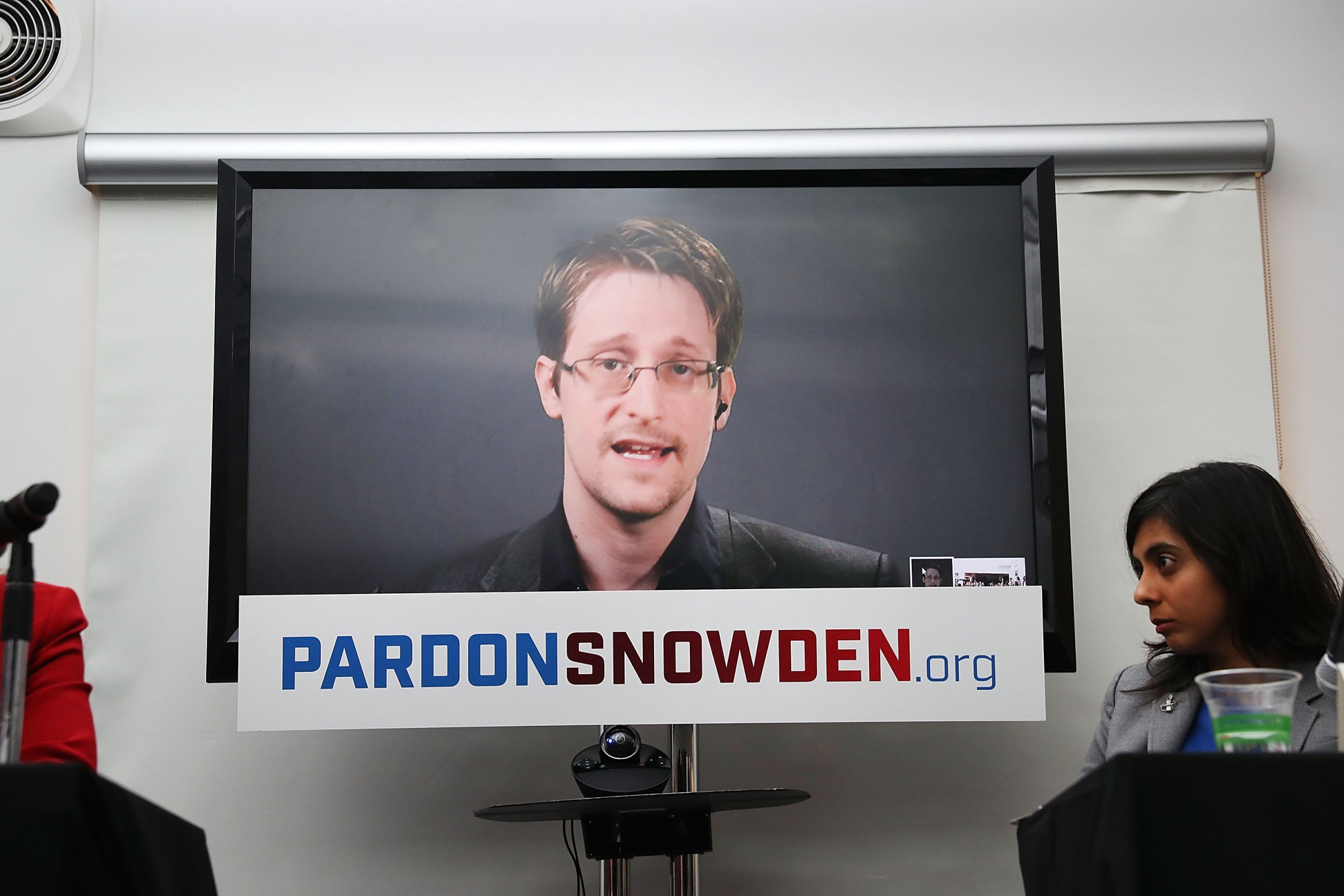
This week, Edward Snowden, multiple human rights and civil rights groups, and a broad array of American citizens asked President Obama to exercise his Constitutional power to pardon Snowden. As a former CIA officer, I wholeheartedly support a full presidential pardon for this brave whistleblower.
All nations require some secrecy. But in a democracy, where the government is accountable to the people, transparency should be the default; secrecy, the exception. And this is especially true regarding the implementation of an unprecedented system of domestic bulk surveillance, a mere precursor of which Senator Frank Church warned 40 years ago could lead to the eradication of privacy and the imposition of “total tyranny.”
That today we are engaged in a meaningful debate about whether such a system is desirable is almost entirely due to the conscience, courage and conviction of one man: Edward Snowden. Without Snowden, the American people could not balance for themselves the risks, costs and benefits of omniscient domestic surveillance. Because of him, we can.
For this service, the government has charged Snowden under the World War I-era Espionage Act. Yet Snowden did not sell information secretly to any enemy of America. Instead, he shared it openly through the press with the American people.
For this service, Snowden has been accused of having “blood on his hands“—the same evidence-free cliché trotted out every time a whistleblower reveals corruption, criminality or anything else the government would prefer to hide. That this charge is being aired by the very people responsible for wars that have led to thousands of dead American servicemen and servicewomen; hundreds of thousands burned, blinded, brain-damaged, crippled, maimed and traumatized; and hundreds of thousands of innocent foreigners killed, is more than ironic. It’s also a form of psychological projection, or propaganda, intended to distract from where true responsibility for bloodshed lies.
And for this service, the usual suspects have claimed Snowden has caused “grave damage to national security.” As always, the charge is backed by nothing but air, and ignores—in fact, is intended to distract from—the real damage caused by metastasizing governmental secrecy. This includes not only disastrous government mistakes and cover-ups (see the Bay of Pigs, the “missile gap,” the Gulf of Tonkin, Iraqi weapons of mass destruction, etc.), but also the ongoing strangulation of democracy itself. The nation is not made more secure, but is instead more fragile, when the government knows more and more about the people and the people know less and less about the government.
Even well-meaning media personalities fret over questions like: “But what would happen if every top-secret cleared intelligence employee decided what secret information to unilaterally declassify?” In fact, whistleblowing is extraordinarily rare, in part because of the draconian penalties the government metes out to punish it. What’s rampant—and real—is over-classification. An insistence on discussing a fantasy hypothetical of radical transparency, when the world we actually live in is one of radical secrecy, seems a strange way to frame a debate.
If leaks really are so terrible that the government conflates them with espionage (and even with terrorism), why isn’t the government prosecuting the thousands of leaks that insiders dole out to favored reporters every day? It’s almost as though leaking isn’t really the problem, but rather the nature of leaks—with leaks that assist favored government narratives encouraged, and ones that challenge those narratives prosecuted.
It’s important to understand that Snowden violated no “oath” of secrecy—because there is no such oath. The only oath is the oath to defend the Constitution. With regard to secrecy, there is only an NDA. So anyone who suggests that Snowden violated an “oath” of secrecy is either ignorant or lying. Faced with a choice between an oath on the one hand, and an NDA on the other, Snowden chose the oath—the real oath, the only oath—and alerted the American people to what the government was concealing from us.
In other words, Snowden followed his conscience. Authoritarians might condemn such a choice. Americans should celebrate it. After all, in his seminal essay “Civil Disobedience,” Henry David Thoreau wrote, “It is not desirable to cultivate a respect for the law, so much as for the right.” And indeed, if people were intended to only and always obey the law, why would we have been given the power—and burden—of conscience? Similarly, if the president were intended always to hew to the law even at the expense of justice, why would the founders have vested the office of the president with the power of pardon?
Without question, history will vindicate Edward Snowden as it has Daniel Ellsberg. President Obama has a chance to be on the right side of that history. In doing so, he would do his legacy, and his country, a great service.
More Must-Reads from TIME
- Why Trump’s Message Worked on Latino Men
- What Trump’s Win Could Mean for Housing
- The 100 Must-Read Books of 2024
- Sleep Doctors Share the 1 Tip That’s Changed Their Lives
- Column: Let’s Bring Back Romance
- What It’s Like to Have Long COVID As a Kid
- FX’s Say Nothing Is the Must-Watch Political Thriller of 2024
- Merle Bombardieri Is Helping People Make the Baby Decision
Contact us at letters@time.com